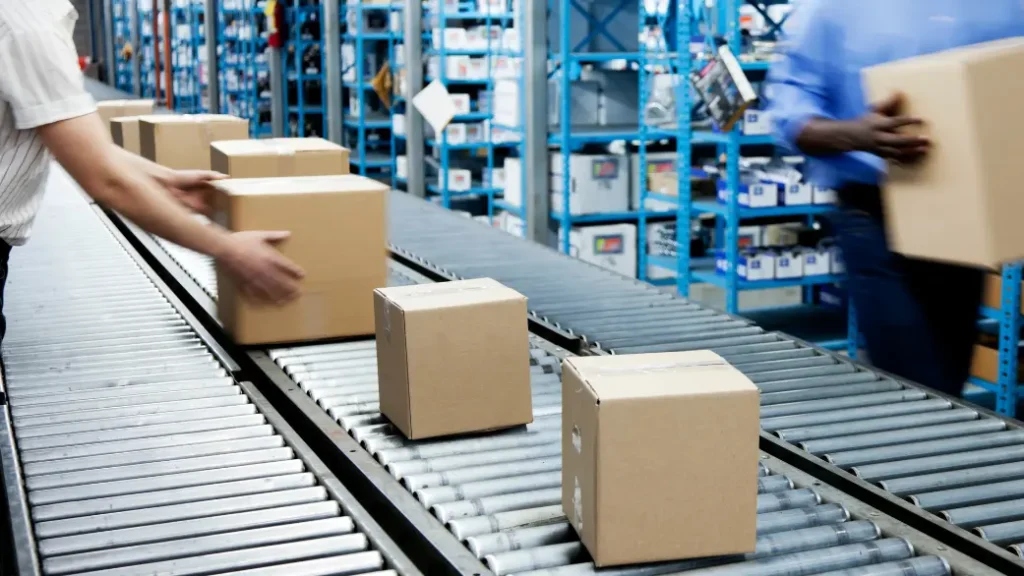In today’s digital age, speed and accuracy in retail operations are the keys to success. The latest RFID solutions can deliver intense experiences at a surprisingly low cost. Businesses are leveraging innovative RFID business intelligence solutions like never before to gain a competitive edge.
Although RFID has been on the horizon for the previous decade, fresh innovations propel the technology forward and require manufacturers and retailers to adapt. Retailers are looking for new data sources to help them optimize their operations. RFID generates a whole new set of data on in-store environments, product mobility, and customer behavior. As a result, companies currently need to start experimenting with RFID. Even early adopters can create new capabilities to maximize RFID’s potential.
Why should you use RFID solutions in your retail warehouse?
- Warehouses can execute workflows with increased speed, precision, and productivity.
- Creating an accurate inventory record eliminates the time spent locating pallets and SKUs.
- Due to the speed and accuracy of reading RFID tags, it is possible to automate numerous warehouse operations easily.
- RFID solutions can enforce product integrity standards and other quality assurance methods and facilitate inventory management.

Five benefits of RFID in Retail
RFID business intelligence solutions are revolutionizing the retail sector and help in increasing productivity and efficiency. Outdated, labor-intensive, manual inventory and shipping processes are time-consuming and prone to error. Automated RFID solutions save time and money by automating shipment verification and receipt and increasing process throughput. Using RFID Tunnel MOT Station (Multi-Operations Tunnel) can scan warehouse packages in bulk with quicker scans and identify item-level contents with 100% accuracy.
Here are some key areas that help retailers benefit from RFID intelligence solutions in their warehouses.
1. Receiving Audit:
RFID solutions can simultaneously scan numerous things in retail audit processes. It can facilitate the verification of items in warehouses. As is common knowledge, warehouse items are transferred from one location to another, especially in large organizations. Reassigning and moving items make it challenging to maintain track of each of them. RFID asset tracking can be of great assistance in preventing this issue.
Similarly, RFID technology aids item auditing by keeping track of each one’s precise position. Item-wise, RFID-tagging of assets provides the location of each one of them, which is particularly useful for conducting an efficient asset audit, maintenance, compliance monitoring, etc.
With asset auditing software, the business can quickly organize and execute audits. This software is also helpful for assigning a specific group of items to a particular user or auditor.
Therefore, there is no labor duplication, allowing you to work offline so that the information is synchronized when the system connects to the Internet.
2. Shipment verification:
RFID Shipment/Order Verification refers to using RFID technology to verify a customer’s order or that the shipment of goods is accurate before it ships to the client. Typically, staff performs order fulfillment manually, and the same individual or another employee performs shipping verification. A Shipment/Order Verification system prevents human error and assists in
- Increasing the visibility of daily shipments, inventory use, and workflow
- Adding tracking information to every item received or delivered
- Reducing fulfillment and shipping errors to save business time and money.
- Improving the client experience by reducing the error rate.
3. Returns Management:
RFID technology can assist shops with their current return policies by offering clear inventory and stock management insights, enhancing consumer experience. Implementing RFID technology is a tried-and-true method for businesses seeking to streamline the returns process.
RFID can further simplify the returns management process by scanning each product tag at each level of the supply chain, resulting in easily accessible item histories and tracking. RFID also contributes to the execution phase by enabling the precise identification and allocation of returned objects to the appropriate operational channel, such as resale, repackaging, or destruction.
With greater accuracy and visibility, merchants can ensure the best provision of returned items, which increases profitability and decreases friction for consumers, who are consequently less likely to look to competitors for a better experience. RFID technology enables retailers to reduce the impact returns have on their profitability and to implement sustainable and efficient operational methods.
4. Packing orders:
RFID technology enables error-free identification of containers and products, enabling rational picking. The tags are substantially more durable than commonly used barcode labels, have a longer lifespan, and meticulously manage picking. It is possible to optimize shipping quantities and cut shipping expenses. Data can be kept redundantly on the tags, making logistics decisions decentralized. This data can be a backup in the event of process errors and expedite restoring normal operations. At a glance:
- RFID offers a greater degree of order-related picking and packing automation.
- Reliable identification of products; nearly no assignment errors.
- Controlling intralogistics automatically accelerates operations.
- Durable engineering and extended service life.
- Shipping volumes that are optimized lower transport expenses.
RFID tags enable tracking the path of the items or containers through the intralogistics chain. RFID read heads at multiple stations on the conveyor lines detect the tags and help set track switches appropriately for steering the container’s path onto the right track.
5. E-commerce orders preparation:
With the integration of RFID technology into your eCommerce, one can avoid errors such as the available stock not matching the actual inventory, which can result in a loss of sales and customer confidence and increase management complexity.
RFID makes inventory management quite simple. By identifying all items and having a completely integrated and dependable stock of your whole supply chain, you will increase the efficiency and user experience of online shopping, increasing sales through this channel, lowering operating expenses, and achieving complete product traceability.
In retail and pharmaceutical industries, the information in RFID tags is precious to the customer. Moreover, RFID tags are impossible to counterfeit compared to barcodes.
At crucial stages, such as shipping, RFID solutions assure the organization that one will avoid numerous failures. The customer will feel more satisfied when purchasing from a company or brand that provides an excellent logistics service, frequently opting to buy more expensive goods if it guarantees shipment or return without technical issues.
Wrapping Up:
RFID-based intelligent business solutions are transforming warehouse management and retail and give a competitive edge due to increased efficiency and productivity. Integration capabilities make it possible to work seamlessly with other applications. In addition, you may conduct audits through mobile, which optimizes the asset auditing process, check shipments using the RFID Shipment/Order Verification system, manage inventory, and obtain stock insights for e-commerce orders.
Ready to collaborate?
Contact us to learn how our RFID business intelligence solutions can improve efficiency in your operations!
